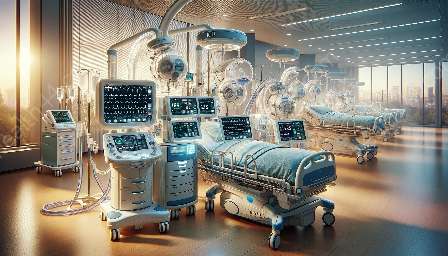Feeding tubes play a vital role in providing essential nutrition and hydration to patients who are unable to consume food and liquids orally. This advanced medical technology is a key component of life support systems and various medical devices, offering significant benefits to individuals requiring specialized care.
Understanding Feeding Tubes
Feeding tubes, also known as enteral tubes, are medical devices designed to deliver nutrition, medications, and fluids directly into the gastrointestinal tract of patients who are unable to swallow or consume food in the traditional manner. These tubes are utilized in a wide range of healthcare settings, including hospitals, nursing homes, and home care environments, to support individuals with complex medical needs.
Feeding tubes come in various types, each serving specific purposes based on the patient's condition and nutritional requirements. Common types of feeding tubes include nasogastric tubes (NG tubes), gastrostomy tubes (G tubes), and jejunostomy tubes (J tubes).
Integration with Life Support Systems
Feeding tubes are integral components of life support systems, serving as a crucial method for delivering essential nutrients and fluids to critically ill or medically fragile patients. In intensive care units (ICUs) and other critical care settings, patients may require respiratory support and mechanical ventilation, making it challenging for them to eat or drink independently. Feeding tubes facilitate the delivery of nutrition and medications, ensuring that these patients receive the necessary sustenance to support their recovery and overall well-being.
For patients who are unable to maintain adequate oral intake due to conditions such as severe neurological impairment, traumatic injuries, or prolonged unconsciousness, feeding tubes are essential in providing sustained nutritional support while they receive comprehensive medical care.
Benefits of Feeding Tubes in Medical Devices
Feeding tubes are utilized in conjunction with various medical devices and equipment to ensure seamless integration within healthcare protocols. Modern medical devices incorporate feeding tube compatibility to enable precise and controlled administration of nutrition, medications, and fluids, enhancing patient safety and comfort during treatment and recovery.
Advancements in medical technology have led to the development of specialized feeding tube systems that offer enhanced functionality and improved patient outcomes. This includes the integration of feeding tubes with infusion pumps, enteral feeding pumps, and monitoring devices to optimize the administration and management of enteral nutrition, resulting in personalized care tailored to the unique needs of each patient.
Impact on Patient Care
The use of feeding tubes has a profound impact on patient care, especially for individuals who require long-term nutritional support or have complex medical conditions. By ensuring adequate nutrition and hydration, feeding tubes contribute to the overall well-being and recovery of patients, improving their quality of life and reducing the risk of complications associated with malnutrition and dehydration.
Moreover, feeding tubes enable healthcare professionals to administer specialized diets, medications, and therapies directly into the gastrointestinal tract, allowing for precise control and monitoring of the patient's nutritional intake. This level of personalized care is particularly valuable in managing patients with compromised swallowing function, digestive disorders, or specific dietary requirements.


